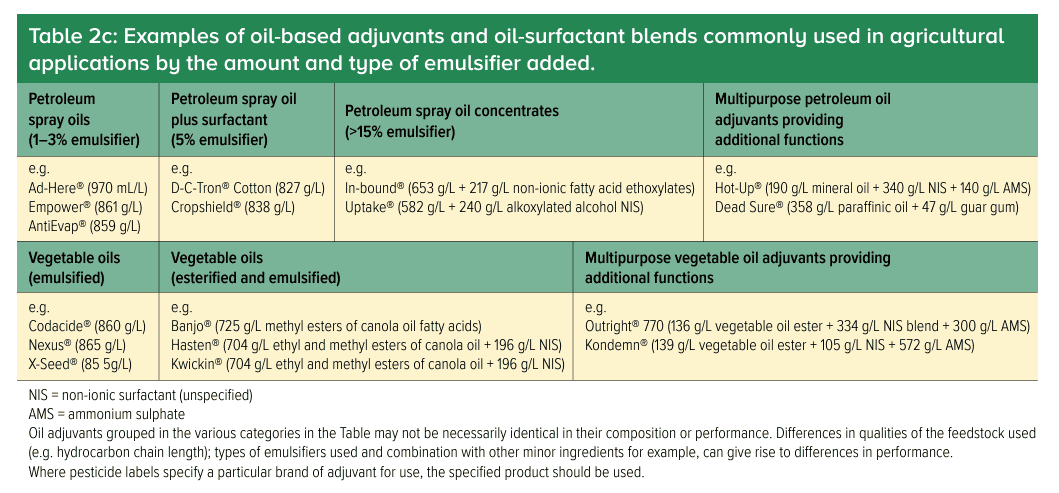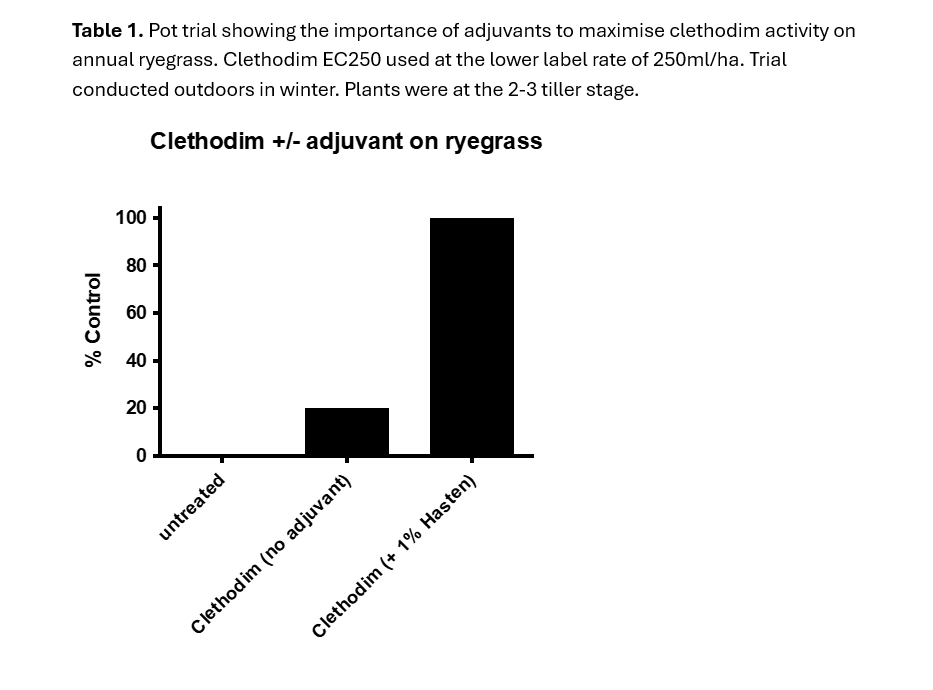Since the development of synthetic pesticides, spray oils have mainly been used as adjuvants to assist with pesticide penetration into the plant and reduce evaporation and the rate of droplet drying on the leaf surface. However, with so many competing products, it can be hard to understand what and why agronomists recommend specific products over others. So, we’re attempting to clear it up for you.
Firstly, there are two main oil adjuvant types: petroleum-based (mineral) and vegetable (plant) oil-based. In this article, we won’t touch on most petroleum or mineral oils (as we don’t use them in crops), but we will quickly mention paraffinic oils, which we do use.
So quickly, what are paraffinic oils?
- Petroleum spray oil concentrates (i.e. Parrafinic oils) are those containing >15% emulsifier.
- Brands include Uptake, Parachute, Enhance, and Inbound. These are like the most modern of mineral oil adjuvants and offer the greatest penetrability and spreadability of petroleum-based products.
Note: Most petroleum oils have been phased out by new vegetable oil-based adjuvants that offer increased efficiency and are more environmentally friendly. Also, petroleum oil pricing is at the mercy of global oil prices, which, as you know, haven’t been cheap in recent years. The exception here is Uptake, a paraffinic oil, which remains a thoroughly researched and highly trusted brand with a reputation for quality and performance. We do recommend it in-crop with products such as Paradigm and Priority.

Info and table from GRDC Adjuvants guide found here.
Vegetable Oil adjuvants are based on edible oils and are usually emulsified. They are characterized by their plant oil origin, method and degree of processing. Vegetable oils can be esterified as well as emulsified to reduce viscosity (make them more flowable). The emulsifiers used in these oils are important in determining the properties of the oil, including phytotoxicity and penetrability.
- Vegetable oils (emulsified) are not commonly used in broadacre cropping due to their viscosity and risk of phytotoxicity. Products include Nexus, a pure canola oil.
- Multipurpose vegetable oils are those mixed with additional products such as ammonium sulphate and non-ionic surfactants to provide a more specialized use. An example of this is Outright 770, which is designed for summer spraying in less favourable conditions.
- Vegetable oils (emulsified and esterified)** are much less viscous than only emulsified vegetable oils, making them more user-friendly. These oils are the most commonly used products in broadacre farming today, such as Hasten, Kwicken, and CanDo.
**The esterification process used to make these oils, as well as the emulsifiers used, differs between products and can make a big difference to efficacy and phytotoxicity. This is why products that are labelled the same can still vary significantly from each other.
So, why do we specifically recommend Hasten/Can-Do when choosing oils in crop?
Oil labels state total quantities of oil such as ‘704g/L ethyl and methyl esters of canola oil’, but it is not required to disclose the percentages of ethyl versus methyl. For instance, one product, such as Hasten, may contain predominantly ethyl esters, while a generic version may contain predominantly methyl ones. As mentioned, this will make a big difference when it comes to efficacy.
In other words, oils ain’t oils.
When purchasing spray oils, understanding this difference is crucial to ensure you are buying the safest and most effective product.
An excellent example of this is Hasten and its generic competitors. Hasten spray oil contains a unique blend of ethyl and methyl esters of canola oil. But it is Hasten’s high proportion of ethyl ester that makes it a premium product with increased penetrability and improved crop safety over other blends with higher proportions of methyl ester. This is why we’ll always specifically recommend Hasten in crop. Don’t be fooled – the only other spray oil on the market with properties similar to Hasten is Nufarm’s CanDo, which is 100% ethylated ester canola oil. CanDo’s efficiency is seen in its low use rate of no higher than 0.5%, even at a lower loading of 500g/L.
Another important factor that goes unnoticed in spray oils is the type and quality of the emulsifiers and surfactants used in the formulation. These can heavily influence penetrability, spreadability and the rate of droplet drying. Many cheaper generic products do not contain the same quality or loading of these as Hasten and CanDo.
Hasten/CanDo and Uptake are the preferred oil adjuvants on the labels of a wide range of products and are backed by many suppliers, including Bayer, BASF, Adama, Syngenta, and Nufarm. Some of the main products you should be using Hasten with include Clethodim, Intervix, Atlantis, Velocity, Hammer, and Sharpen. It is these products, especially, where you’ll see the difference in crop between oils.
The table below from Plant Science Consulting shows a pot trial showing the importance of adding an oil like Hasten with Clethodim when targeting ryegrass.


